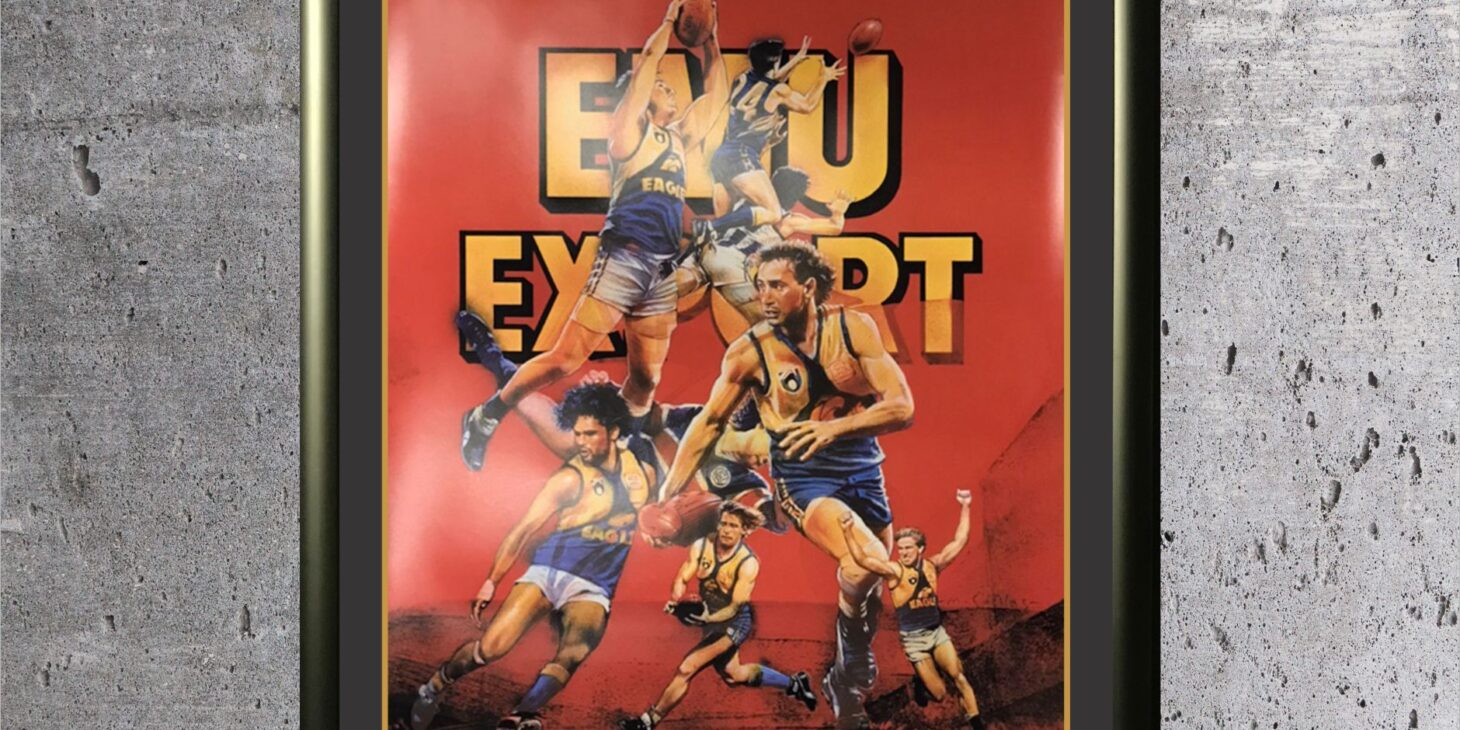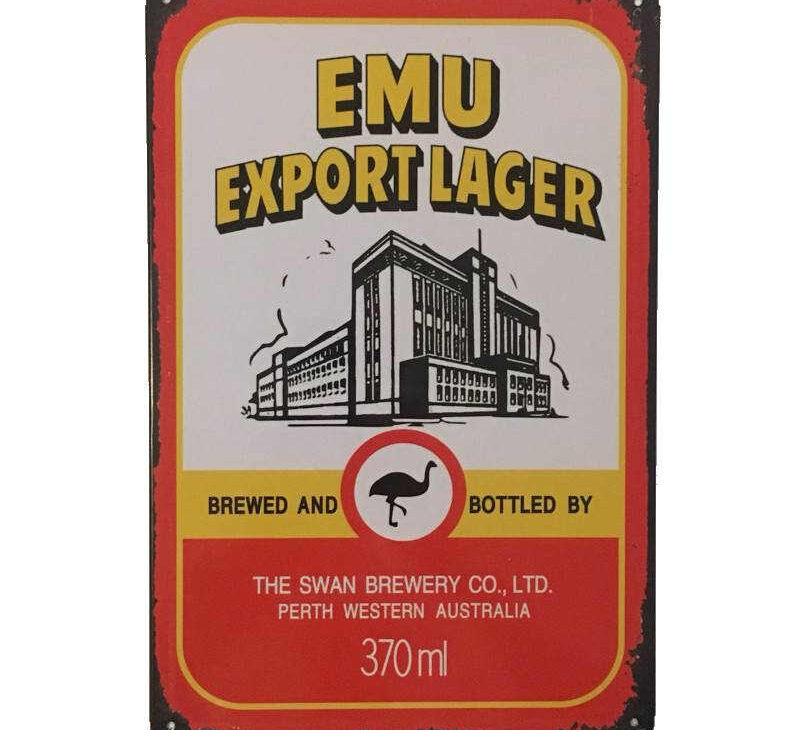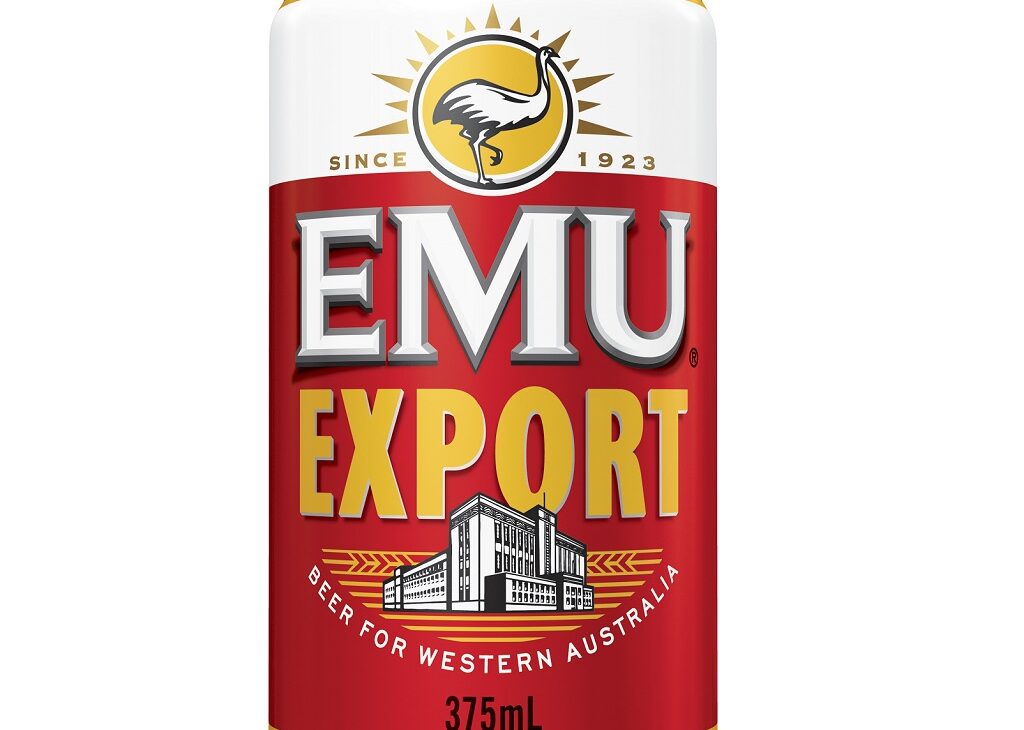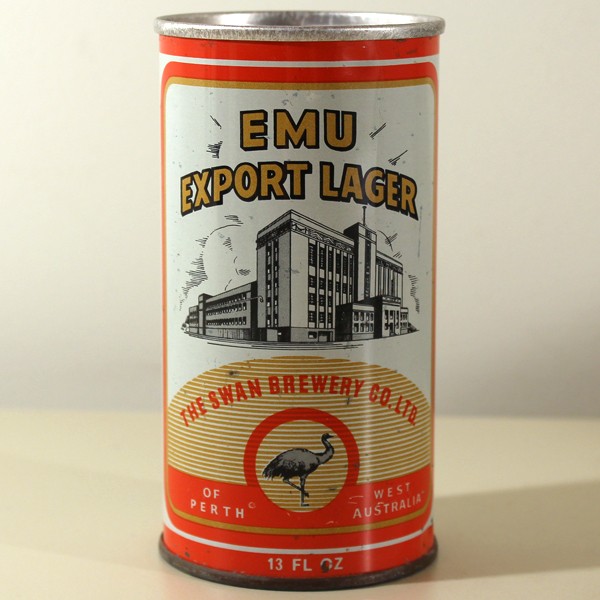
Nostalgia and the rise of Reschs and Emu Export
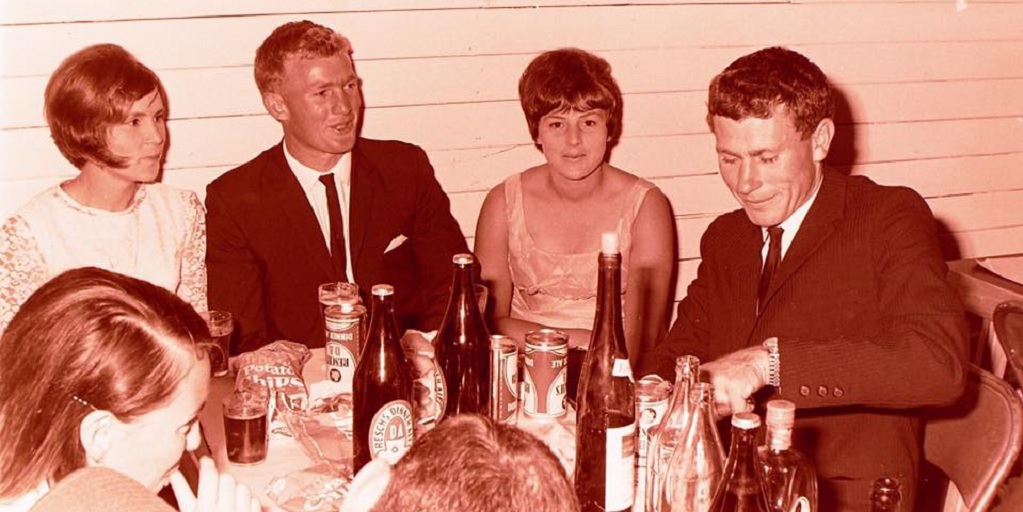
Tathra Rugby League Club Ball held in the town in 1967. Courtesy of Trevor Mace of the Reschs Appreciation Society.
A national debate was sparked earlier this month when CUB beer brand Reschs was voted the nation’s favourite beer.
After the result of the poll was declared, voting was left open and a further 25,000 people voted – significantly changing the results. James Squire and Stone & Wood in fact tied for the top spot, but Reschs still came in third in the nation – despite the historic beer being only available in New South Wales.
What the poll highlighted was the rise of historic beer brands, often tied to a specific region like Lion’s Emu Export, affectionately known as a ‘Bush Chook’ in WA, and the number one brand in the Western Australian packaged beer market, according to IRI data.
CUB said they did not release any sales figures (although the company was happy to release figures relating to Carlton Zero and the 3.2 million litres sold since the alcohol-free beer was launched last year) but they said they were “pleased” with the performance of Reschs Draught and Reschs Pilsener in NSW.
It raises questions about why now, during the rise of independent craft beer, old favourites are reemerging.
“Whilst nostalgia marketing is far from an exact science, the concept relates to linking a brand or product to old ideas, in order to evoke some sort of positive memory or emotion in consumers,” explained Ella Ward, a senior marketing scientist at the Ehrenberg Bass Institute at the University of South Australia.
“From a psychology perspective it involves tapping into a consumer’s existing memories, and attempting to create new links between those positive memories and the brand,” she said.
Nostalgia
A sentimental perception of products on the part of consumers is, to a certain degree, fuelling the return of Emu and Reschs.
Reschs has its own Appreciation Society with a Facebook group of more than 4,500 people, which marshalled its membership to vote in the News.com.au poll and has also raised nearly $11,500 for the Movember Foundation through the sale of Reschs merchandise. Meanwhile Emu Export has been immortalised in both ice cream and pies.
Even CUB has highlighted the grassroots movements keeping Reschs in the spotlight.
“It is important to recognise the efforts of the passionate members of the Reschs Appreciation Society who support the brand the only way they know how – by drinking their favourite drop,” said a CUB spokesperson.
A CUB spokesperson said the Reschs brand was important to its NSW portfolio, “and not just for the sales results”.
“It has an important role in Australian beer history stretching back to when it was founded by Edmund Resch in 1897. We don’t take this history lightly,” they said.
“The tagline ‘Reschs Refreshes’ has struck a chord with beer consumers for decades and is as true today as it ever was.”
Ella Ward from the Ehrenberg Bass Institute said that the success of the brands was in leveraging existing memory structures.
“For example, the Emu Export can currently in circulation remains largely unchanged from that sold during the brand’s initial popularity boom in the late 80s.
“These brands have reinforced a consistent identity across time to ensure they remain easy to find and recognise, even decades later,” she explained.
Jamie Ryan, field sales director in WA for Lion, owners of the Emu Export brand, said that the popularity of the beer has fluctuated since it was first brewed in 1954.
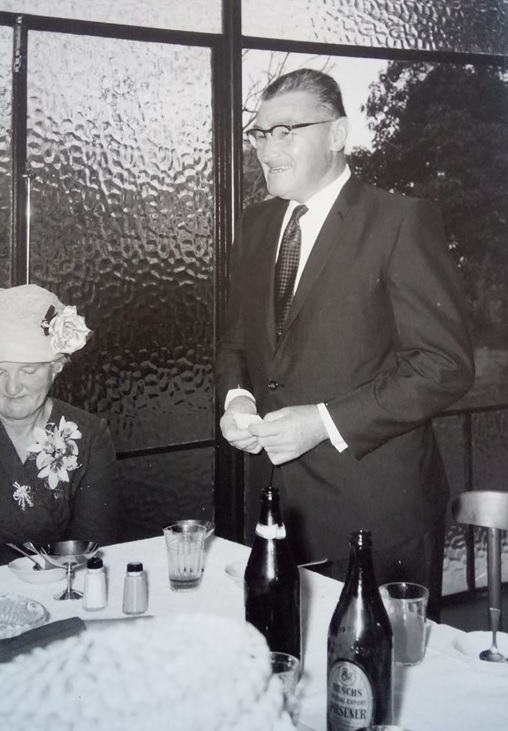
Father of Reschs Appreciation Society Terry Nugent, pictured in 1961.
“Brands come and go but Emu has had a resurgence in the last five to seven years. It’s very much seen as a retro, cool beer to drink,” he explained.
He also said a lot of the popularity was coming from grassroots movements, such as third parties which are unrelated to Lion selling “Bush Chook” merchandise online.
“It’s organic growth in that sense, we could look to try and control that, but it’s got that momentum and people have embraced the ‘Bush Chook’.”
Ward said that it was precisely this non-interventionist marketing policy that works for historic brands like Emu.
“Older brands are in the unique position that they typically have an extensive history of branding assets, (such as logos, colours and packaging) and marketing communications to capitalise on.
“So rather than reinvent the wheel, using these existing materials can be a good way to refresh and reinforce existing memory structures, rather than attempting to establish new ones. [Companies should] avoid the temptation to ‘refresh’ or ‘modernise’ the brand’s visual identity; if it ain’t broke, don’t fix it!”
Lion and CUB have subscribed to this marketing tactic, to great effect.
“Marketing activity is balanced by the size of the brand within CUB’s portfolio and reviewed on a regular basis. The momentum on the brand is more than just organic,” said a CUB spokesperson.
Lion sales director Ryan said the company does not engage in any ‘above-the-line’ marketing for Emu – that is, it is not advertised on mainstream television, radio and other media.
“That’s what we’ve found to be most effective from a marketing point of view. There’s so much noise and marketing within beer and alcoholic beverages spaces. It’s always a challenge to cut through this noise, and we’ve found with Emu, doing less is more.”
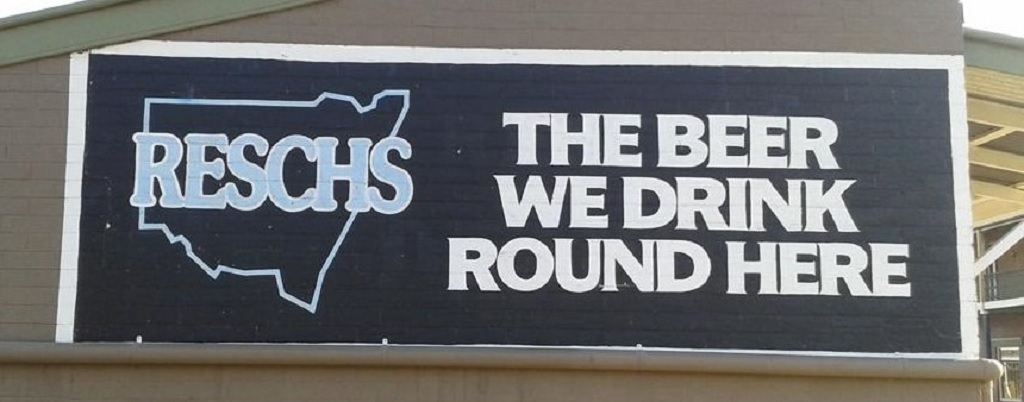
Courtesy of the Reschs Appreciation Society.
Perceptions of craft beer
When Balter Brewing released promo videos earlier this monthfor the national launch of its new lager, the brewery drew attention to the concept of stereotypical “beer geek”, pointing out how inaccessible some styles of beer and some perceptions of the craft beer industry can be to the “ordinary” consumer.
The reaction against the complexities of craft beer can encourage consumers towards more mainstream beers and styles. This in turn prompts a resurgence in the popularity of the old favourites, according to Ward.
“What we know about product innovations and new product development is that it tends to skew towards heavier category buyers,” she explained.
“This means heavy beer drinkers are systematically more likely to notice and purchase these products, because they have more extensive category knowledge.
“For the regular consumer, it’s unlikely you’ve even heard of many of these craft brews, let alone purchased them.”
She said that consumers on the whole are creatures of habit, especially those who may not have a special interest in drinking independent beer.
“We [as consumers] buy from a small group of brands that we shuffle between for different purposes. The everyday beer drinker cares about getting in, purchasing a beer that will do the job, and getting out. The reality is, that tends to be a brand you’ve purchased before.”
It’s also the case that mainstream brewers have a huge distribution network, making their beers more accessible, particularly in the heard-to-reach regional and rural heartlands of brands like Emu.
“The brands are affordable with wide distribution, being readily available across buying channels and retail outlets. Breaking down these barriers makes them easier to buy, and more physically available to consumers, another key driver to success,” Ward said.
Ryan agreed with the idea that a crowded market means that time-poor buyers, who may not be interested in branching out when it comes to beer, pushed some consumers towards the brands they knew or remembered.
“What’s old is new again. There’s a proliferation of craft, but that speaks predominantly to ales and sometimes heavy, hoppy, flavoured beers, whereas Emu is different in a sense in that it’s clean, crisp, easy drinking – it does not have the complications a craft beer might have.
“We’re passionate about brewing craft beer too of course, but Emu speaks to those people that want an uncomplicated article.”
Locality
‘A sense of place’ is a major trend in the craft beer industry. Hyperlocality of beer adds value to what’s already a ‘premium’ product, and independent brewers argue that buying local keeps money in the local area.
Emphasising the ‘local’ appeal of brands can be a differentiating factor for both craft and mainstream beers. Indeed, it was used to great effect with the marketing of relatively new entrant, Great Northern, “the beer from up here”.
But despite the perceptions of Reschs and Emu as being local brands, they’re in fact not brewed in their associated regions.
Reschs (“the beer we drink round here”) is brewed at CUB’s Yatala Brewery in Queensland, whilst Emu Export is brewed at Lion’s West End Brewery in South Australia and Tooheys in New South Wales, after the WA’s Swan Brewery closed in 2012.
Some WA craft brewers say the move to close Swan actually led to the accelerated growth of craft beer in the region. This small point doesn’t seem to deter their legions of fans, however.
“I think the uniqueness of the history of the brand and what it means as far as its connection in WA [is most important],” explained Ryan.
“I’m WA born and bred and I drink Emu and so do my mates,” he said. “It’s crisp, clean and really perfect for our climate, chilled down on ice or out of a cold fridge. It really works for the WA lifestyle.
“Our brewery networks around the country are passionate about brewing great, quality beer, regardless of where it’s going. It’s not brewed in WA but it’s brewed for WA.”
Whatever it is that appeals to consumers, Lion has been receiving requests for Emu from venues across the country, and it’s available at the Fortune of War and a limited number of venues in NSW, as well as 71 venues in Queensland.
“Venues in Sydney are selling on-premise, and we’ve had requests from expat Western Australians to take Emu Export to rural Queensland,” Ryan said.
Despite the growing popularity of their historic products, Lion and CUB have no plans to take Reschs or Emu national.
“The demand would need to be strong in concentrated areas of Australia to justify a distribution program,” said a CUB spokesperson.
“There is still a bit of work to do to strengthen the brand in NSW before a program to other states would be considered.
“But for now, consumers can go to platforms such as Booze Bud and order a case of Reschs for delivery anywhere in Australia if they desire.”

